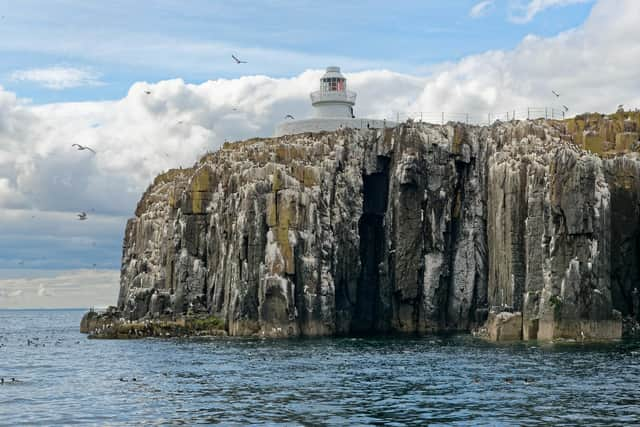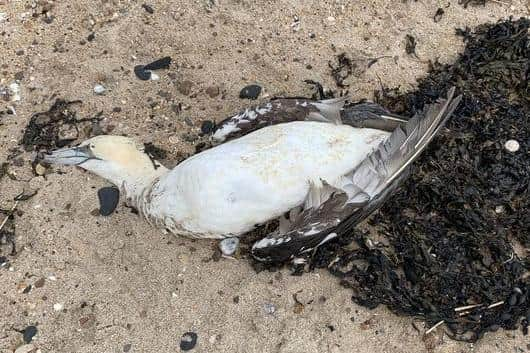Bird flu death toll on Farne Islands climbs over 3,000
and live on Freeview channel 276
The National Trust, which manages the islands, says the 3,104 carcasses collected by rangers are likely to be the ‘tip of the iceberg’.
Cliff nesting birds such as guillemots and kittiwakes seem to be impacted most by this strain of the virus and it is believed many more will have sadly fallen and been lost to the sea.
Advertisement
Hide AdAdvertisement
Hide AdRangers have been kitted out with full PPE and respiratory protection including hazmat suits, gloves and masks to avoid further contamination to the healthy birds.


Simon Lee, general manager for the Farne Islands, said: “The welfare of our staff, volunteers and visitors is our top priority as we navigate this unprecedented wildlife tragedy on the islands.
"The National Trust has cared for the Farne Islands for just under 100 years, and there are no records of anything so potentially damaging to our already endangered seabird colonies.”
The Farne Islands are home to approximately 200,000 seabirds.
Advertisement
Hide AdAdvertisement
Hide Ad“We closed the Islands to limit disturbance to the birds and are monitoring the situation daily,” added Mr Lee. “Our team of rangers are working hard to minimise the spread of the disease.”


The disease is fatal among wild birds. It is spread when birds come into direct contact with an infected bird, faeces, body fluids or indirectly via food and water.
Now, the Trust is calling for an urgent, coordinated response plan from the Government.
Ben McCarthy, head of nature conservation and restoration ecology at the National Trust, added: “Avian Influenza is a huge threat to the conservation work and ambitions of the National Trust.
Advertisement
Hide AdAdvertisement
Hide Ad"This disease is undoing decades of hard work to restore nature and undermines the Government’s own targets to reverse the decline of our threatened species and improve their habitats.
“The scale of this disaster calls for an urgent National Response Plan for the virus in wild birds. We need a more coordinated approach to ensure effective monitoring, surveillance and reporting to support research into the impacts this deadly disease is having on our wild birds across the UK.
“There is a lack of clear and effective guidance and arrangements for disease control, and we need to urgently develop mitigation measures to reduce the further spread in the coming months as birds migrate back into UK waters.
“The National Trust and our conservation partners, including the Royal Society for the Protection of Bords (RSPB) and British Trust for Ornithology (BTO), are committed to working with Defra and relevant Government agencies to enable this response plan to take shape.”
Advertisement
Hide AdAdvertisement
Hide AdA Defra spokesperson said: “We recognise the significant threat posed by highly pathogenic avian influenza (HPAI) to the UK’s precious wild bird populations, but there are limited effective actions that can be taken to protect them, as opposed to captive bird flocks.
“Our current policy is in line with international standards of best practice for disease control. The Animal and Plant Health Agency operates a robust, year-round programme of dead wild bird surveillance and clear public guidance has been issued not to handle their carcasses. Our new research consortium also funds research into how bird flu viruses are emerging in wild populations and help us understand the risk posed to both domestic and wild birds.”
The breeding season on the islands has almost come to an end and the annual, departure of birds will begin.
The UK Health Security Agency (UKHSA) has advised that the risk to the general public's health is very low, but people should not touch sick or dead birds. If found, please report any dead birds to Defra on 0345 9335577.
The National Trust is also advising people to keep dogs on leads when around wild birds to prevent the disease spreading to mammals.